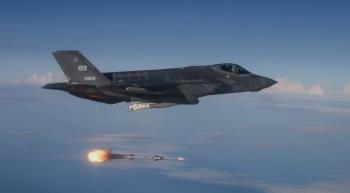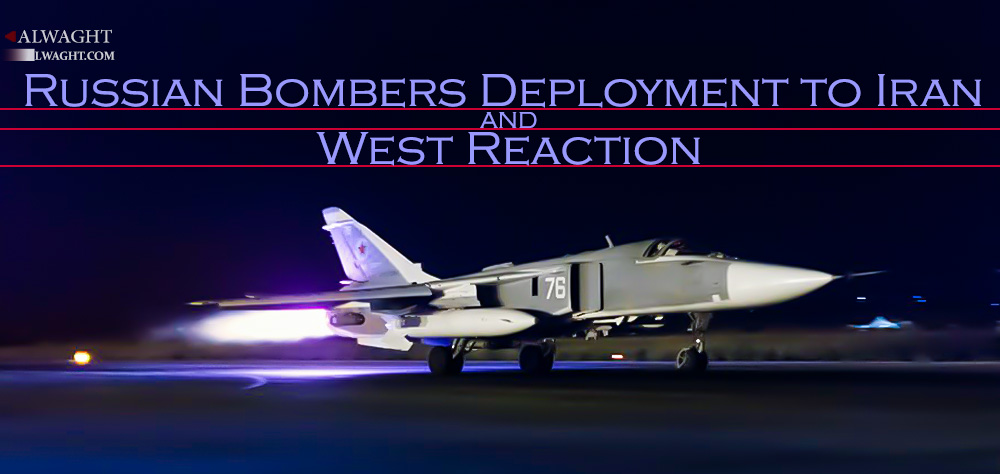Alwaght- Almost a week ago on August 15 the news spread that Russia deployed its bombers to Nojeh Airbase in Iran's western province of Hamadan for easier bombing of the positions of the ISIS terrorist group and other takfiri groups in Syria. The news instantly called attention of the mainstream media after an image of the bombers was circulated online. The deployment received mixed reviews and reactions inside and outside Iran. The Arab and even Western media bristled at the news of the Russian long-range bombers deployment. They tried to find faults and question the Russian move, including claiming that it violated the UN resolution 2231.
Most of the reactions came from the American media and officials as they contained confusion and were multivocal. In fact, every political and military figures of the US as well as the media belonging to the decision-making institutions had conflicting views on the Russian deployment.
For example, on August 16 a US military commander told the media that Washington was aware of the use of Iran's Nojeh Airbase by the Russian strategic bombers, however, on August 21 another US army commander, who appeared to be very concerned about cooperation between Moscow and Tehran to strike the positions of ISIS terrorist group in Syria, warned Russia and Syria during their air campaign they must avoid bombing the places that the American special forces existed in.
Lieutenant General Stephen Townsend, the commander of the US forces in Syria and Iraq, has asserted that if the Russian fighter jets and the government of the Syrian President Bashar al-Assad attack areas in northern Syria where the American special forces are stationed, Washington would respond to protect its personnel. Furthermore, the US Department of State said that it was assessing the Russian deployment to see if Moscow by stationing its bombers in Iran to carry out air raids in Syria has breached the UN Security Council’s resolution.
However, the Russian Foreign Minister Sergey Lavrov has responded to the allegations of resolution breach, saying that there was no reason to conclude that by using Iran's airbase for anti-terror operations in Syria Russia went against the Security Council's resolution.
FM Lavrov asserted that the Russian bombers' flights from Nojeh Airbase in Iran's Hamadan did not mean selling military jets to the Islamic Republic, adding that the bombers were being used by the Russian air force to conduct anti-terror operations in Syria with a full approval of Iran and at the behest of the legitimate Syrian officials.
When the propaganda campaign of the Western and American media against the Russian deployment proved failed and resultless, they went to great lengths to specifically highlight the domestic reactions of Iran to the deployment. For example they argued that Tehran’s approval of Russia using its airbase was in violation of the Article 146 of the constitution of the Islamic Republic of Iran which reads “it is banned to host a foreign military airbase in the country even for peaceful purposes." However, the constitution of Iran gave leverage for short-term military cooperation between Tehran and foreign countries. The Article 176 about the duties of the Supreme National Security Council of Iran sees authorities for the council to make decisions on periodic military cooperation with foreign parties.
According to the Article 176, using the material and spiritual capabilities of the country for confronting the domestic and foreign threats is a task of the Supreme National Security Council of Iran whose decisions need the confirmation of the Leader of the Islamic Revolution for being legal. According to the Chairman for the Committee for Foreign Policy and National Security of the Islamic Consultative Assembly of Iran Alaeddin Boroujerdi, the decision on military cooperation with Russia and allowing the Russian bombers to use Hamadan Nojeh Airbase is in compliance with the Article 176 of the constitution.
Additionally, the Western officials were faced with serious reactions from the foreign minister, parliament speaker, defense minister, Chairman of National Security and Foreign Policy Committee of Iran's Parliament.
For example, the Iranian Parliament Speaker Ali Larijani has said that the flights of the Russian bombers from the western Iran airbase were not halted, and that Moscow and Tehran formed an alliance to fight terrorism, an alliance that works for the Muslim countries of the region. But Iran gave no military base to Russia as a global power, according to Larijani.
A focus on the remarks of the Russian and Iranian military and political officials indicates the strategic depth of alliance between the two countries to obliterate ISIS and other takfiri groups in Syria.
Last week after a joint decision of Iran, Russia, and Syria, the Russian Sukhoi and Tupolev bombers flew from Hamadan airbase and hit targets in Aleppo, Idlib, and Deir ez-Zor.
It seems that the West and particularly the US has expressed concerns over the Russian-Iranian cooperation because their measures for making efficient anti-ISIS coalition have failed. The military alliance of Russia, Iran, Iraq, and Syria can once again prove inefficiency of the Western military policies in Syria.



























